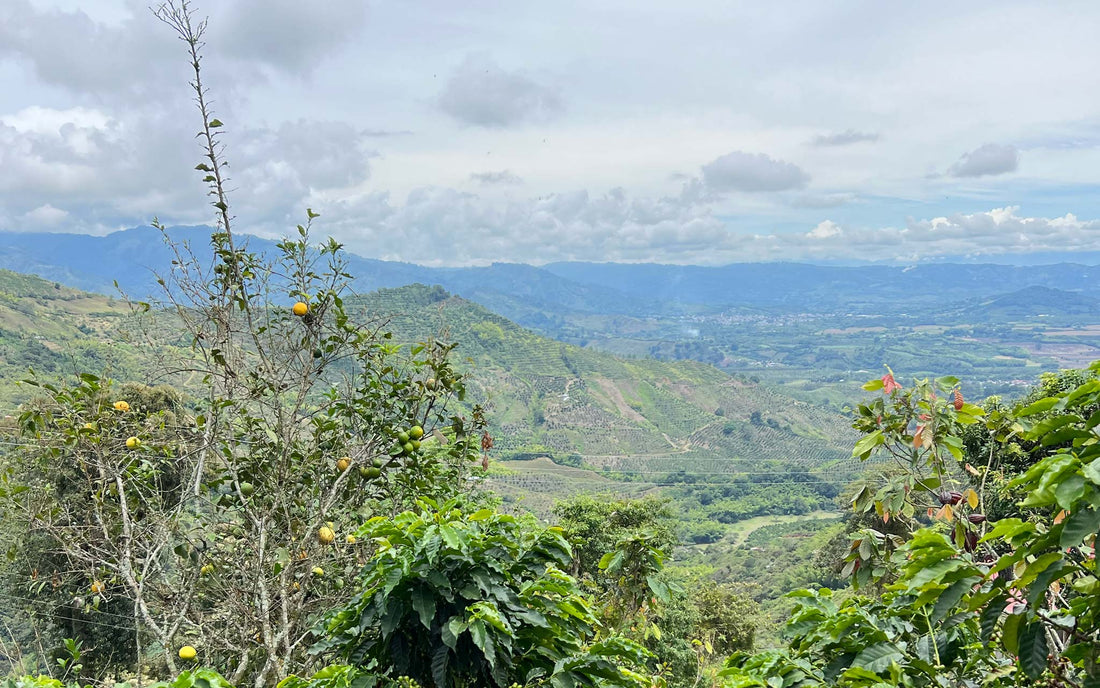
September 22, 2023
Colombia is the largest Spanish speaking country in South America, home to part of the Amazon River and rainforest, many mountain ranges, and a Pacific coastline. This variety of geographical characteristics allows the country to be megadiverse, serving as a refuge for many species of birds, mammals, and plants. Colombian geography also makes it an ideal country for growing coffee, with the elevation, temperatures, and soil composition needed for Arabica coffee to thrive.



Coffee has been a part of the agricultural, cultural, and economic fabric of Colombia since the 17th century. Cultivation began on a small scale, but by the 19th century coffee farming had accelerated to become the largest source of rural livelihoods in the country. In 1927, the Federación Nacional de Cafeteros de Colombia (FNC) was founded as a non-profit organization designed to represent and support Colombian coffee farmers domestically and internationally. The collaboration between the FNC, NGOs, companies, and the 541,183 coffee farmers in Colombia has resulted in a thriving coffee industry establishing Colombia as the third largest producer of coffee in the world.

It is not only the sheer quantity of coffee that has made Colombia a prominent player in the coffee industry, but also the quality. Colombian coffee has a global reputation of being some of the best coffee in the world. Produced in a variety of diverse microclimates, Colombia offers coffee with complexity and nuanced flavor.
Here at Westrock Coffee Company, we love Colombian coffee and more than that, we love working with Colombian farmer partners. Through our sustainability programs, Raíz and Farmer Direct Verified, Westrock works with over 9,000 Colombian coffee farmers.

Luz Marina Grisales is one such valued farmer partner. Luz grew up working alongside her parents and 6 siblings on their family coffee farm in the 1960s. Luz grew up, got married, and started a family and a coffee farm of her own. Several years later, when her two daughters, Francy and July, were young, Luz tragically lost her husband and farm. Luz was forced to start over. In 2009, together with her daughters and after years of saving, Luz bought La Mata de Guadua, a 2-hectare coffee farm in Antioquia. The three Grisales women poured all their time into making it a financially and environmentally sustainable farm. They joined Raíz in 2016 to learn how to maximize profitability and environmental conservation on their farm. But it wasn’t until Raíz offered a women’s-only training group that they started to participate frequently. Luz Marina and her daughters found a sense of community in the women’s group that they hadn’t yet found in this new region of Colombia -- a space where they could share their questions and feel comfortable engaging process of learning farm economics and how to improve their savings. As one of the most active women in the group, Luz Marina, has learned and implemented several major farm improvement projects on her family’s farm, including organic waste recycling, record keeping, programmed pruning and farm risk assessment. These projects have led to a 37% increase in their farm income.

As a primary component in several of our blends, and even as a single origin, our sensory experts are looking for Colombian coffees that show a bright acidity, a medium fruitiness, and that add a nice chocolatey tone to the cup. Single origin Colombian coffee is often used as a morning coffee to pair with pastries, but can also be a nice, after dinner, dessert coffee.

Want to learn more?
Contact Us- Choosing a selection results in a full page refresh.



